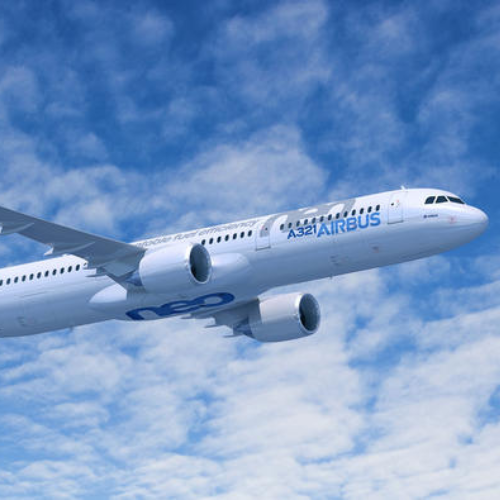Russia is facing a major problem with its Airbus A320neo aircraft. Around half of its fleet of these modern planes has been grounded due to engine problems. These issues have been made worse by the international sanctions that have hit the country’s aviation industry. According to reports, the situation could lead to long-term challenges for Russian airlines and the people who rely on these flights.
Engine Problems Impacting Flights
The Airbus A320neo family of aircraft, which includes both A320neo and A321neo models, is a key part of the fleet used by Russian airlines. However, these planes have been grounded because of a serious problem with their engines. The engines on these planes are made by Pratt & Whitney, a company that is part of the RTX Corporation. This company discovered a rare issue in the materials used to make certain parts of the engine, which has led to the need for extra inspections and removals of the engines from service.
Last year, RTX said that the issue was rare, but it caused problems that couldn’t be ignored. The engines need to be checked and removed more often to prevent further issues, making the planes less reliable. With many of these planes grounded, there are fewer available for airlines to use, which affects the number of flights they can operate.
Sanctions Making the Situation Worse
In addition to the engine problems, Russia’s aviation sector is also dealing with the effects of Western sanctions. These sanctions have severely limited the country’s ability to get new planes and parts from major manufacturers like Airbus and Boeing. Because Russia cannot get the necessary parts and support to fix or maintain its aircraft properly, it has become even harder to keep the A320neo planes flying.
Without access to the right parts and support, these grounded planes are facing a future where they may not be able to fly for much longer. According to experts, many of these planes could be taken out of service completely starting in 2026. This would mean that a large number of aircraft would be unavailable for use in Russia’s skies, further limiting the country’s air travel options.
EU Moves to Stop Russia’s Shadow Fleet from Endangering Waters
S7 Airlines Among the Hardest Hit
One of the largest airlines in Russia, S7 Airlines, has been hit the hardest by this situation. S7 had 39 A320neo and A321neo planes in its fleet, but 31 of them have now been grounded because of the engine issues and the lack of available parts. This is a significant loss for the airline, as these modern planes are a big part of its operations. As a result, S7 has had to reduce its flights and adjust its schedules to cope with the fewer planes available.
Other airlines in Russia are also affected, though S7’s situation is the most severe. These airlines are trying to find ways to get some of their grounded planes back in service. They are hoping that, despite the challenges, they can fix or maintain some of these aircraft in time for the summer season. However, even with this effort, it seems unlikely that the planes will remain in service for much longer due to ongoing issues with the engines and the lack of spare parts.
As of now, Russian authorities are working to address the situation, but with the added pressure of sanctions and the engine problems, it remains to be seen how the aviation sector will cope. The grounded A320neo and A321neo planes account for around 10% of Russia’s foreign-made aircraft, which could lead to major disruptions in air travel. It’s estimated that by 2025, about 10-15% of passenger flights in Russia could be affected, causing even more inconvenience for travelers.
With half of Russia’s Airbus A320neo fleet now grounded, the aviation sector is facing a tough road ahead. The combination of engine problems and the impact of sanctions has left airlines struggling to keep up with demand, and passengers may feel the effects in the coming years.


